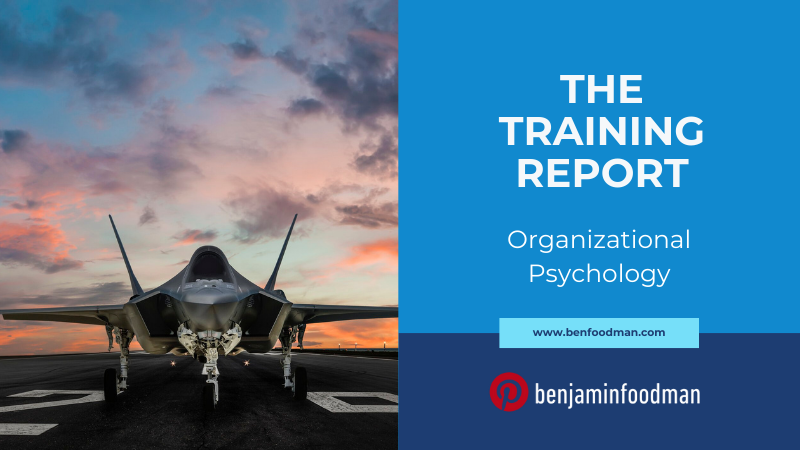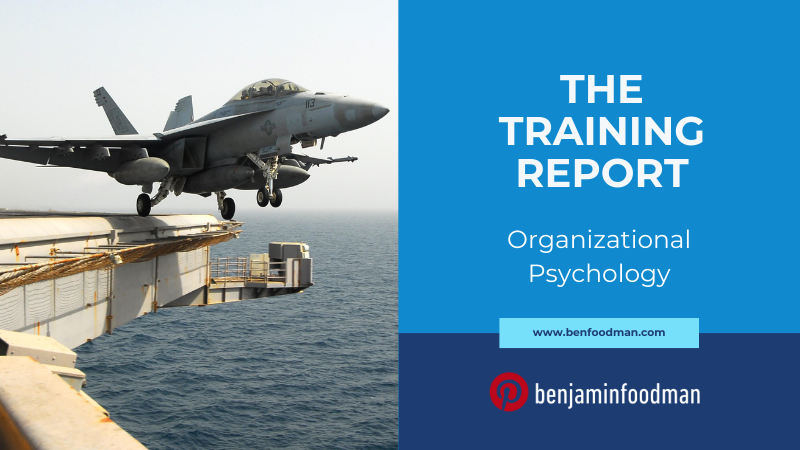Organizational Psychology - Why Athletic Departments Fail Without Strong Interdisciplinary Teams
About the Author
Ben Foodman is a licensed psychotherapist & performance specialist. He owns his private practice located in Charlotte North Carolina where he specializes in working with athletes to help them overcome mental blocks (the yips), PTSD, ADD / ADHD and achieve flow states through the techniques of Brainspotting & Neurofeedback. If you are interested in services, use the link here! Enjoy the article below!
Table Of Contents
Introduction: Industrial & Organizational Psychology Considerations For Athletic Departments
Part I. Common Failures Athletic Departments Make Managing Sports Medicine Teams
Part II. Why Athletic Departments Oftentimes Don’t Make Impactful Teams
Part III. How Athletic Departments Can Make An Impactful Interdisciplinary Teams
Introduction: Industrial & Organizational Psychology Considerations For Athletic Departments
I have had extensive experience working with NCAA athletes at all levels: ACC, SEC, BIG10, Division II & III. I also have amazing colleagues that work in athletic departments within these conferences who do amazing work. But when I speak with college athletes and my peers at these institutions I am always shocked at how poorly managed these departments are. While there is no question that the budgets of college athletic departments are not as unlimited as the public thinks, the resources they do have are often poorly managed.
For this issue of the Training Report I want to review Organizational Psychology approaches that can be used to fix these issues. First, I want to talk about common failures that these athletic departments make when managing teams, second I want to talk about how athletic departments focus on making symbolic hires rather than impactful ones, and finally I want to review an Industrial and Organizational Psychology strategy that athletic departments can use to make a more impactful sports medicine team. Let’s first begin by reviewing common failures of managing teams within an athletic department.
Part I. Common Failures Athletic Departments Make Managing Sports Medicine Teams
One of the most surprising things that I have learned about how athletic departments manage sports medicine teams is how dysfunctional interdisciplinary team meetings are. What I have often found surprisingly is that these meetings are not focused on accomplishing the real goal of enhancing collegiate athlete performance but rather bureaucratic and administrative issues that could be handled in different and more impactful environments. When you have the entire sports medicine team together in one sitting, you need to maximize on that time.
In addition to being inefficient with the interdisciplinary teams available time to coordinate performance enhancement as a group, many professionals in this space have told me how ‘unwelcoming’ constructive feedback is received at the top levels of the athletic department. As such, many problems either get pushed off to a later date which inevitably makes the problem worse or the issue is swept under the rug, and never dealt with. If the leadership in athletic departments was more welcoming to feedback, many of the issues that plague these teams would be fixed reasonably and efficiently.
Part II. Why Athletic Departments Oftentimes Don’t Make Impactful Teams
In speaking with athletic directors or team members in athletic departments, I have found that there is more of an emphasis on bringing in personnel that athletic departments have pre-existing relationships with rather than hiring people with the relevant experience. This is oftentimes the case because the people who are making hires for certain positions are unfamiliar with what high quality experience is and instead exclusively focus on their relationship ties. While working with someone you are familiar with is important, relevant experience is far more critical.
If athletic departments are truly committed to enhancing their student athlete’s performance then one strategy they can use is to bring in a consulting groups, with relevant applied experience that can correctly match ideal candidates with the athletic department’s vision. This seems obvious and while there are certainly some athletic departments that do this, most use online recruiting tools to ‘collect’ resumes and then review those applications in house. This is problematic because there oftentimes is a pre-existing bias in the hiring process that will oftentimes cloud the judgement of the hiring manager. Outside consultants can avert this problem.
Part III. How Athletic Departments Can Make An Impactful Interdisciplinary Teams
There are plenty of blueprints from high performance teams that athletic departments can model their interdisciplinary teams after. I have given plenty of examples in previous Training Reports. Oftentimes what I have found is that athletic departments only look at other athletic departments in terms of how they are constructing their interdisciplinary teams and not at other organizations in other fields. This is a big mistake because if you are an athletic department that is trying to distinguish itself from the competition, it would be helpful to study multiple models.
When trying to assess which organizations athletic departments should study, the only question they need to ask is how effective was the team at orchestrating high level performance outcomes on a constant basis. The United States military, hospital systems, and even private, small outfit sports medicine teams are examples of blueprints that athletic departments can model their interdisciplinary teams after. At the end of the day, the most important strategy that these ADs can focus on utilizing is ‘thinking outside the box’ and try to truly find solutions in areas that are not necessarily related to athletic department structures.
Note To Reader:
If you are an athlete reading this segment of the TRAINING REPORT, hopefully this content was helpful! I put the Training Report together because I felt like many of the discussions on issues such as the Yips/mental blocks, strength training & other subject matter on athlete performance concepts were really missing the mark on these ideas (e.g. how trauma is the direct cause of the Yips). If you are interested in learning more, make sure to subscribe below for when I put out new content on issues related to sport psychology & athlete performance! Also, if you are looking to work with a mental performance specialist, you are in the right place! USE THIS LINK to reach out to me to see if my services are the right fit for your goals!
ARE YOU ON THE LIST?
Make sure you’re signed up to Ben’s mailing list to receive news & updates on new strategies in sport psychology, upcoming workshops & products. Don’t wait, sign up now!


















